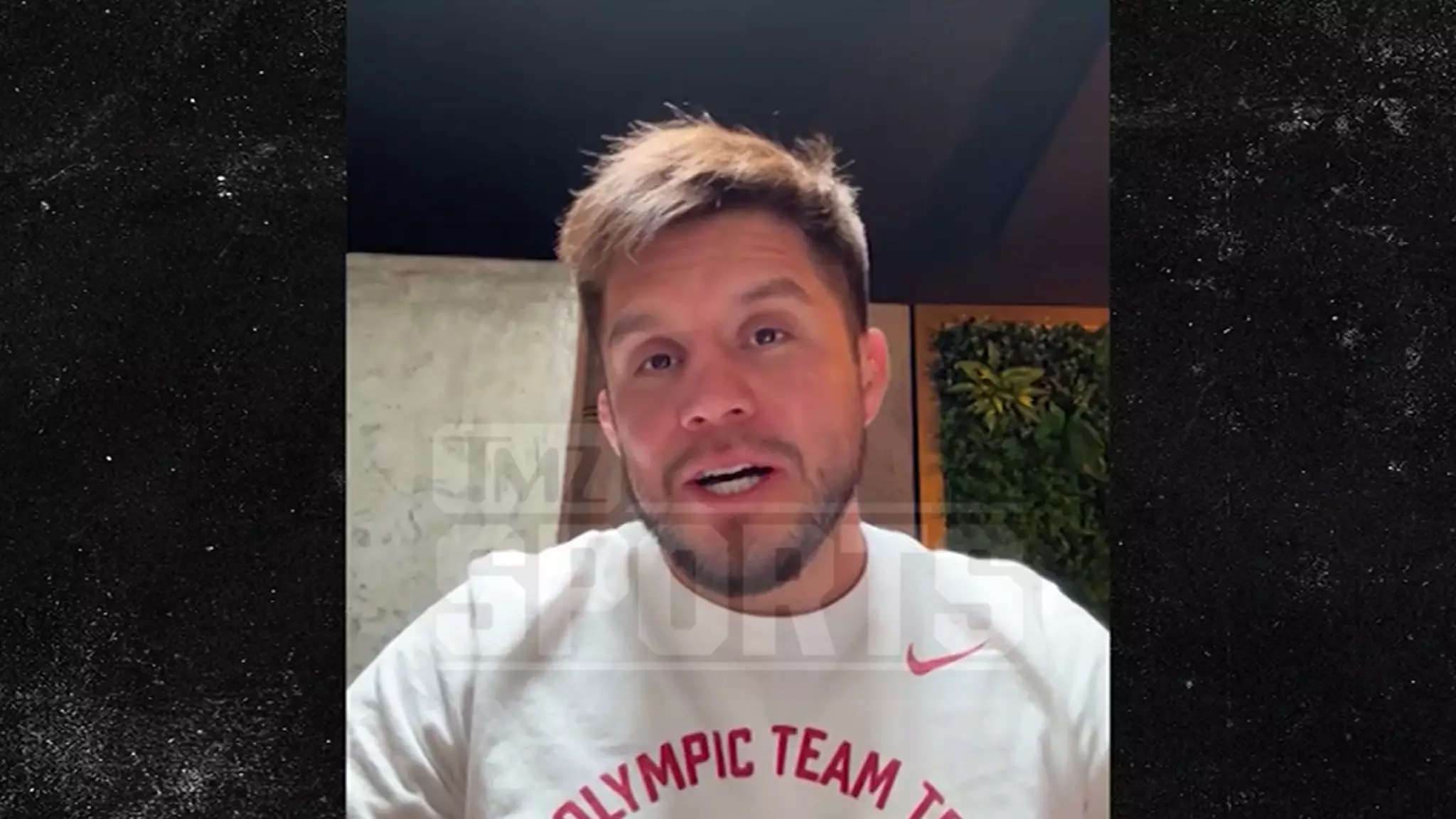In a startling incident that unfolded in his Phoenix neighborhood, Henry Cejudo, the former UFC champion, found himself in a position few would ever anticipate—playing an integral role in a tumultuous hit-and-run event. On a seemingly ordinary Friday night, chaos erupted when Cejudo witnessed a vehicle speeding recklessly down his street at an outrageous 80 MPH. The car, out of control, barreled through his neighborhood, striking sprinkler systems and ultimately crashing into a neighbor’s home. This shocking event not only showcased the dangers of reckless driving but also thrust Cejudo into a scenario that would test his instincts and moral compass.
The Split-Second Decision
As the incident escalated, a group of young adults inside the vehicle attempted to flee the scene. Cejudo, understanding the potential dangers of confronting them—especially with the possibility that they might be armed—made a critical decision; rather than pursuing them immediately, he carefully assessed the situation. His instincts kicked in, particularly after one of the individuals violently struck a neighbor who had approached the vehicle. It is this defining moment that drew Cejudo into the fray, leading him to subdue the assailant and preventing the situation from devolving further.
In a remarkable display of both restraint and strength, Cejudo tackled the suspect, restraining him until law enforcement could arrive. He emphasized that his intervention likely saved the individual from a far worse fate, as a group of enraged neighbors were armed and ready to take matters into their own hands. The juxtaposition of Cejudo’s calm yet assertive actions against the potential for vigilante justice underscores the fine line individuals walk between self-defense and aggression.
A Question of Morality and Accountability
Cejudo’s reflections on the event highlight a broader societal issue: the dire consequences of reckless behavior, particularly when driving under the influence. The suspect, identified as 22-year-old Angel Cota, epitomizes the dangers that come with such irresponsibility—putting not just his own life at risk, but also endangering the lives of countless others in the community. Cejudo’s assertion that accountability is essential in teaching a lesson is one that resonates deeply. “I hope this kid learns his lesson,” he remarked, noting that consequences are often the most effective educators in life’s harsh classroom.
By advocating for consequences, Cejudo steps into the role of not just a fighter but a protector of his community. His experiences as an athlete instilled discipline and quick-witted judgment, allowing him to navigate a scenario fraught with tension and potential violence. In a world where the lines between justice and revenge can blur, Cejudo’s measured response serves as an important reminder that effective intervention can avert tragedy.
Reflections on Heroism and Community Safety
The incident raises essential conversations regarding community vigilance and the responsibility individuals have toward each other’s safety. It begs the question: how can we better prepare ourselves to act decisively in critical moments that demand moral courage? Cejudo’s actions, driven by a sense of duty to his neighbors, reveal an innate heroism that challenges us to think about our own responses to crisis.
As the dust settles on this startling event, it serves as a cautionary tale about the implications of reckless driving while also spotlighting the profound impacts of heroic acts, however spontaneous they may be. With voices like Cejudo reminding us of the importance of community protection, we are encouraged to strive for a safer society, one where individuals hold one another accountable and respond to danger with courage and integrity.

